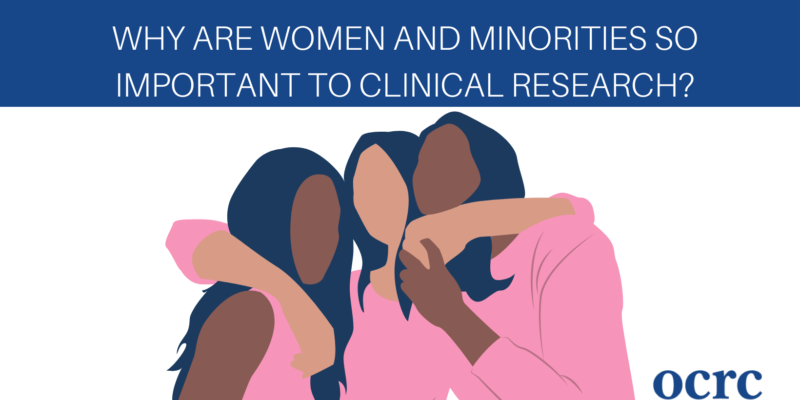
Clinical researchers go to great lengths to understand how medications will impact segments of the greater population. Given the singularity of every patient’s genetic makeup and family background, it is important that clinical trials are representative and encompassing of both gender and ethnicity.
Treating disease and illness is particularly challenging because every person possesses distinct DNA, family history and environmental stressors. In addition to chromosomal, body composition, reproductive and anatomical differences, men and women uniquely metabolize food and medications.
There is no “one-size-fits-all” approach to treat a given illness. An individual’s race, gender, genetics, hormones and lifestyle choices factor into the way he or she reacts to a given course of treatment. Family history also plays a role in predetermining illness, to an extent.
According to The Center for Disease Control and Prevention, lung cancer is 36 percent more likely to occur in African-Americans than other ethnicities. Caucasians experience high rates of skin and bladder cancer. Caucasian women suffer the highest rate of breast cancer, and African-American men experience the highest rates of prostate and colorectal cancer.
Clinical researchers seek out people from all backgrounds to achieve a diverse volunteer pool and offer scientifically valid data, while addressing the individual characteristics of human beings. Researchers must investigate medication efficacy, potency, dosing, side effects, as well as drug impact on varying segments of the population in order to generate scientifically valid data.
Clinical trials offer an opportunity to improve minority health and wellbeing by enhancing medication safety and efficacy. According to the FDA, “Potential racial, ethnic and other differences in response to drugs are important to FDA’s efforts to help ensure that the safety and effectiveness of drugs are studied in all people who will use the products once they are approved.”
Many of today’s medical advances are the direct result of clinical studies, and because of the diligent work of researchers, people may live longer and healthier lives.
If you are considering a clinical trial, please tell us a little more about yourself in the Contact section of the home page and we will respond to you to determine your eligibility for current and future studies.
